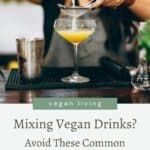



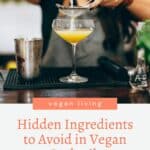
From creative cocktails to refreshing mocktails, vegan drinks can offer a taste of delicious, alpha-gal friendly refreshment. Watch for these hidden ingredients that can sour plant-based cocktail recipes and cause an allergic reaction.
The information provided on this site is based on my personal experience living with alpha-gal syndrome. I consistently cite and link to expert sources, but nothing published on this site should be perceived as medical advice.
Alpha-gal sensitivities vary by person. You should understand your dietary restrictions, making any adjustments needed, and directing any questions to your physician.
When I first began following an alpha-gal diet, I was startled to discover that mammal-based ingredients were hidden in my favorite drinks. Many breweries, wineries, and distilleries use gelatin derived from bovine and porcine sources to clarify their beers, wines, and spirits.
To make life even more challenging for us alpha gals, these ingredients are usually not listed on ingredient labels. This guide will shed light on the hidden ingredients that may trigger an alpha-gal reaction and help you identify safer, delicious alternatives for your cocktail and mocktail recipes.
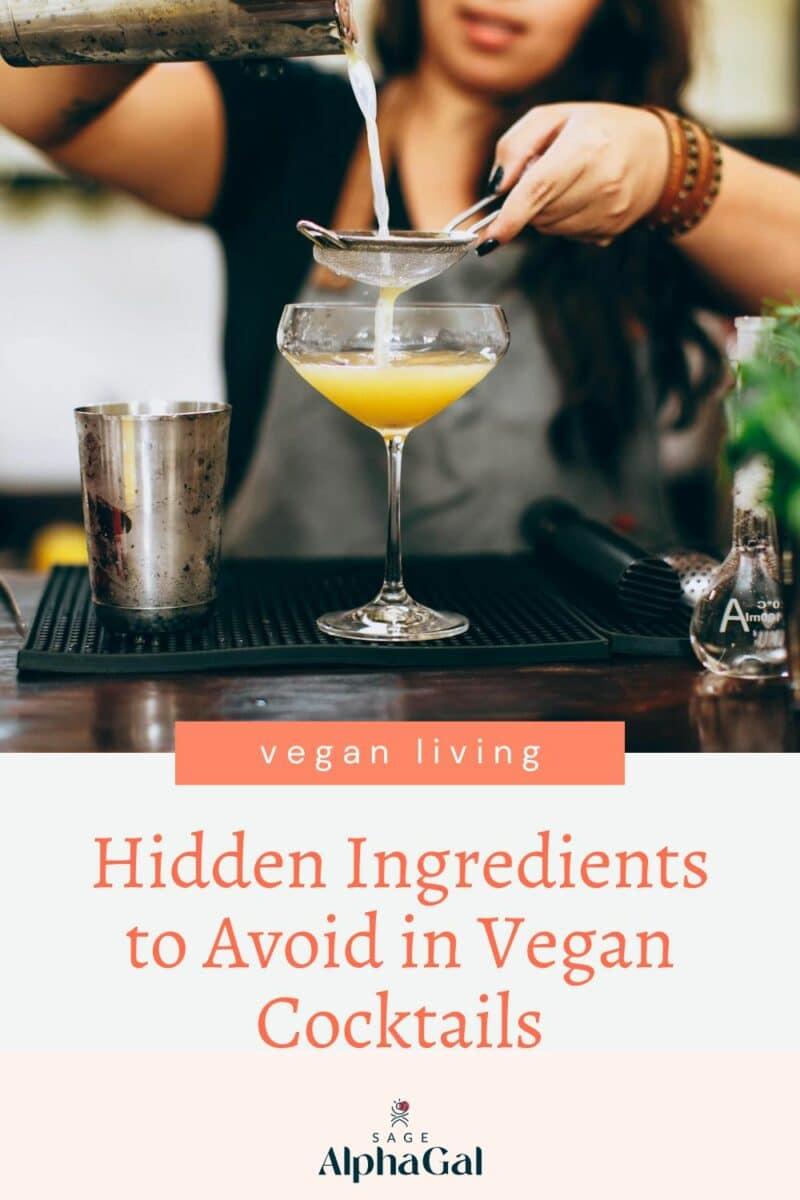
To help offset the costs of running SageAlphaGal.com, you’ll find affiliate links lightly sprinkled throughout the site. If you choose to make a purchase via one of these links, there’s no additional cost to you, but I’ll earn a teeny tiny commission. You can read all of the legal blah blah blah (as my little niece says) on the full disclosure page.
In This Article
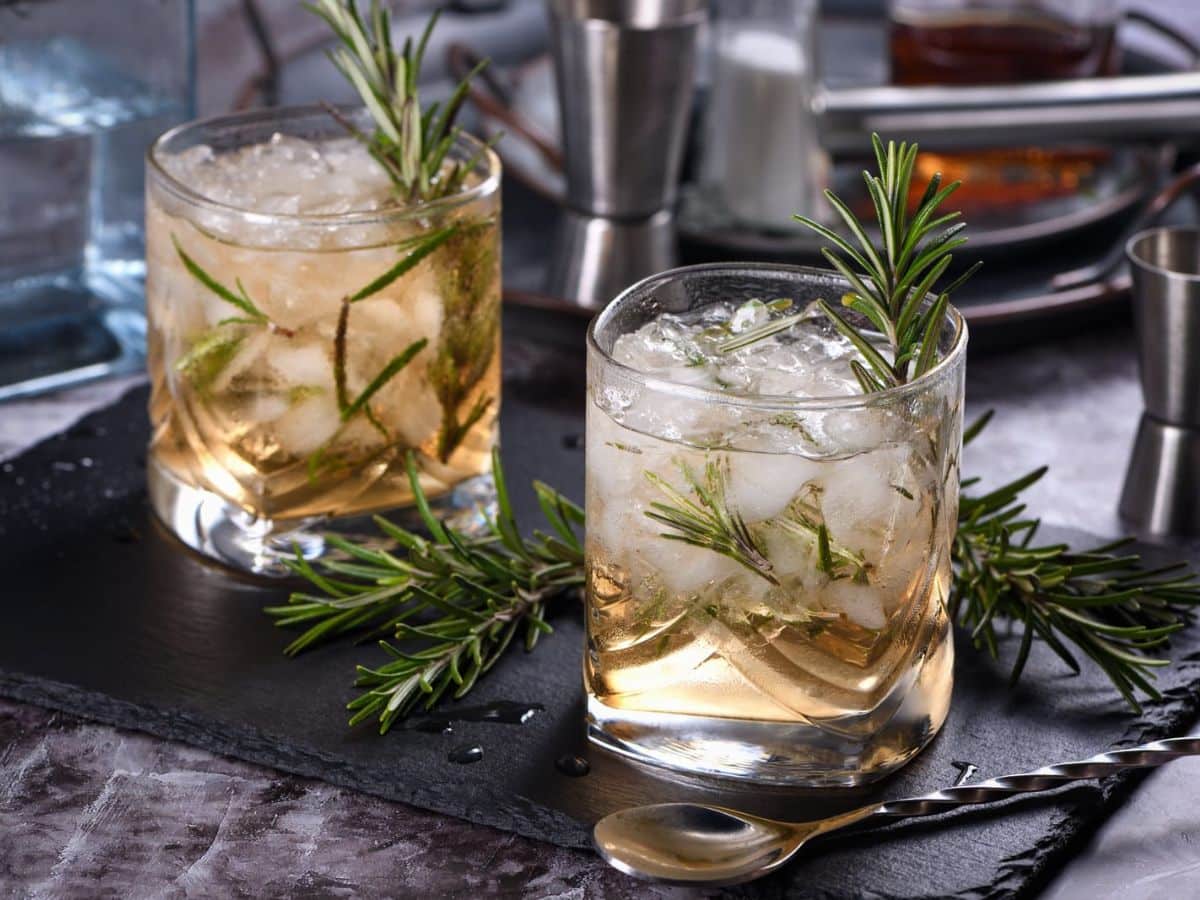
Your Guide to Vegan Cocktails and Mocktails
Whether you’re ordering at a restaurant or mixing up vegan beverages at home, you want a cocktail that won’t make you sick and doesn’t compromise flavor. While most cocktails are vegan, nothing is worse than a surprise ingredient stirring, shaking, or blending its way into your drink.
As you explore options that align with a vegan diet, avoiding classic cocktail ingredients typically laden with animal products, such as dairy, honey, and egg whites, is crucial. Instead, choose creative alternatives and substitutes that uphold vegan principles while delivering exceptional flavor.
This guide walks you through the ingredients to avoid and alternatives that won’t miss the mark. These substitutes are worth stocking in your home bar for your at-home cocktails and mocktails. And when you’re out and about, watch for these hidden ingredients on the drink menu.
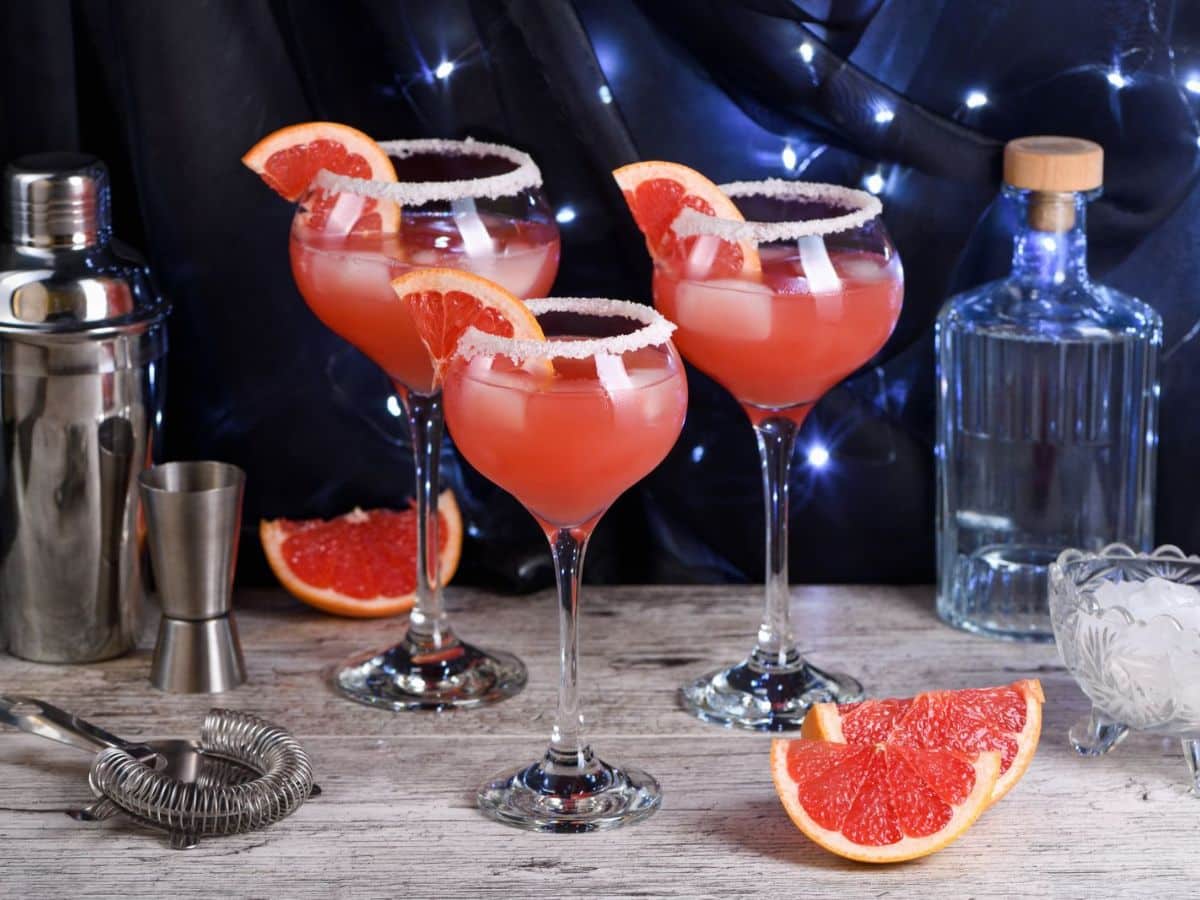
Spirits for Vegan Drinks
Are you wondering if the spirits in your alcoholic drink are vegan? Most popular cocktail spirits like brandy, gin, rum, tequila, vodka, and whiskey use plant-based ingredients.
- Fruits like apples, cherries, or grapes make brandy.
- A starch such as wheat or barley makes gin.
- Sugarcane makes rum.
- The agave plant makes tequila.
- Starchy plants like corn, rye, wheat, or potatoes make vodka.
- Fermented grain mash from barley, corn, rye, or wheat makes whiskey.
However, some manufacturers use bone char sugar or gelatin as refining agents. While honey is an alpha-gal-friendly ingredient, when it is used to sweeten rum, gin, or other spirits, those items are no longer vegan.
Sage Advice: To be sure you’re using an alpha-gal friendly spirit to make your vegan drink, use Barnivore. The website and app make it easy for you to go deeper than product labeling to make an informed decision and ensure you can raise a glass without an allergic reaction.
Common Non-Vegan Cocktail Ingredients
While exploring vegan cocktail options, it’s essential to be aware of common ingredients that are not vegan-friendly. Although certain ingredients like eggs, Worcestershire sauce, honey, and red dye may be safe for those with alpha-gal syndrome, they remain off-limits for vegans. Understanding these distinctions can help you make informed choices whether you’re crafting a drink at home or selecting one from a menu.

Dairy
Cocktails with dairy, such as a white Russian and Brandy Alexander, are popular after-dinner drinks. Dessert cocktails also often incorporate milk products like whole milk, half-and-half, heavy cream, and ice cream. You can easily replace these ingredients with a plant-based milk. Instead of traditional cow’s milk, try almond milk, oat milk, cashew milk, soy milk, or another nondairy milk. Instead of half-and-half, heavy cream, or ice cream, try a plant-based option like Country Crock plant cream or Silk dairy free heavy whipping cream alternative.
“To make my cocktails vegan, I use unsweetened cashew milk in place of milk and sometimes cream. The flavor of cashew milk suits most cocktails better than other dairy-free milk,” said Erin Dooner of Texanerin.
Coconut cream and cashew milk can better mimic the silkiness of heavy whipping cream, but they can affect flavor. “Canned coconut milk has a strong flavor and, depending on the recipe, may result in unappetizing lumps of coconut cream,” said Dooner.
In high-end cocktail bars, look for clarified milk punch. It’s a clear cocktail made from cow’s milk, as the name implies. This labor-intensive drink is made by curdling the milk solids with heat, citrus, or alcohol and then filtering out the solids.
Additionally, some spirits contain dairy. For example, many brands of Irish cream, including Baileys Irish Cream, contain dairy. However, the company now offers Baileys Almande, a vegan alternative to its signature spirit made with creamy almond milk and soy.
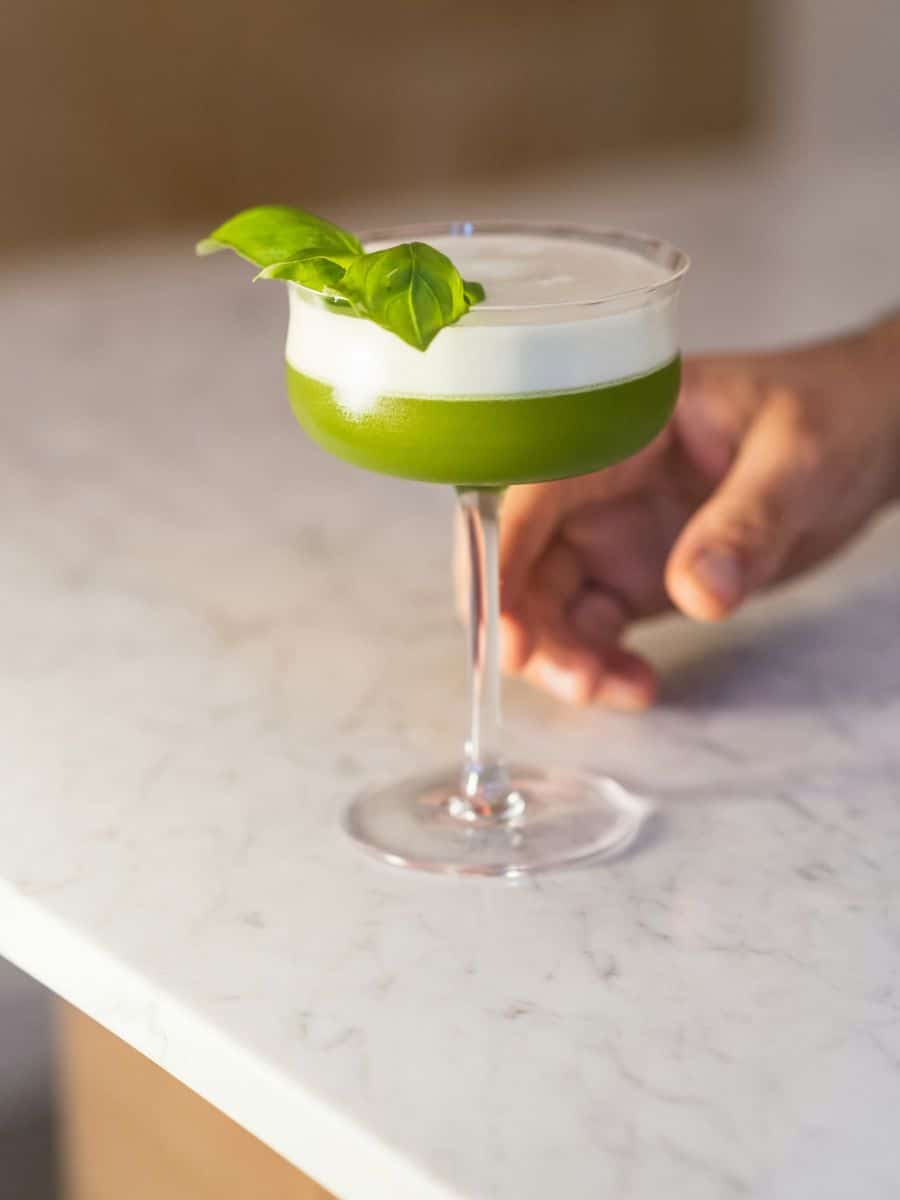
Eggs
“When we have vegan guests and want to make a cocktail with egg white foam, I use aquafaba, the liquid from canned chickpeas. I whip it with some simple syrup for a frothy drink topper.”
— Gen La Rocca, Two Cloves Kitchen
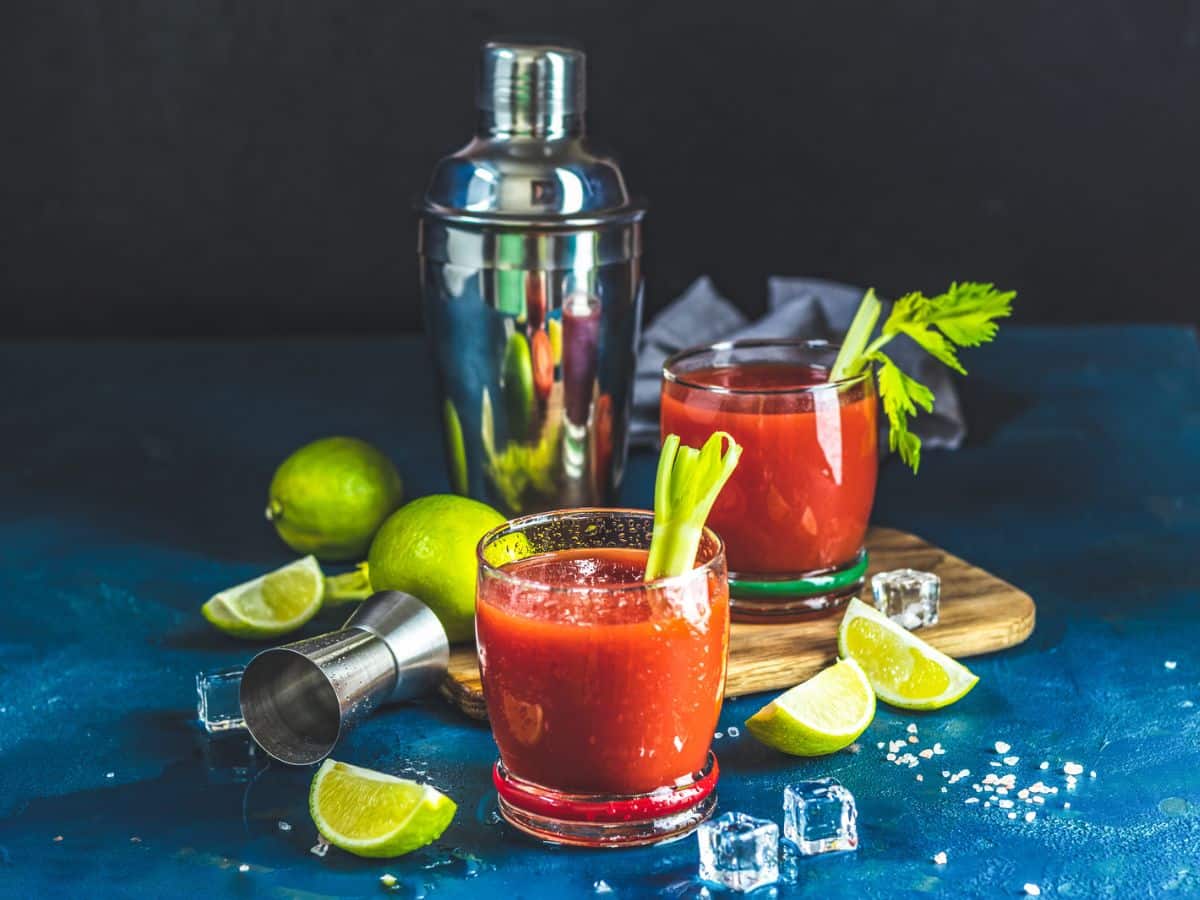
Worcestershire Sauce
Some savory cocktails can contain Worcestershire sauce, a bold cooking flavor enhancer usually made from anchovies. If you’re looking for a similar flavor in your next bloody Mary, try substituting a splash of soy sauce or coconut aminos. You can also use vegan Worcestershire sauce.
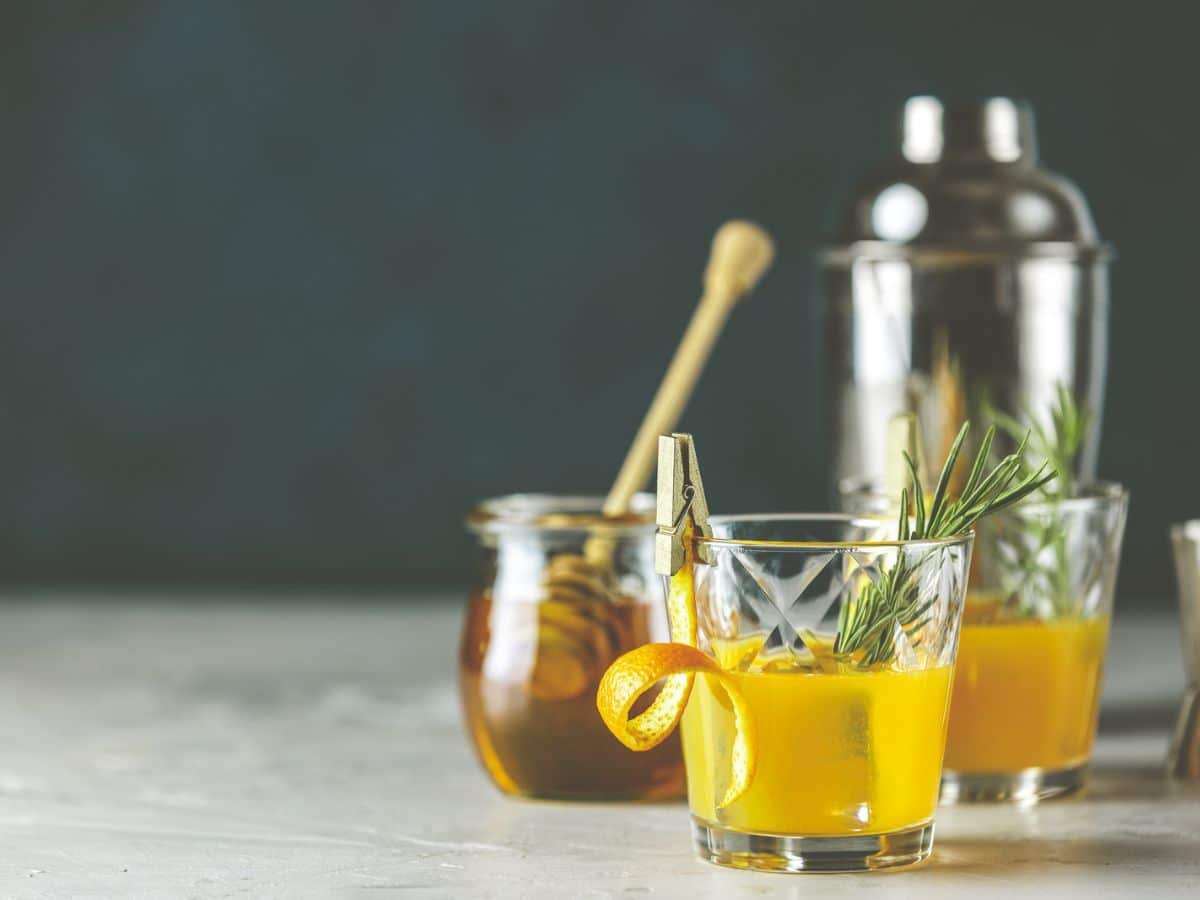
Honey
Honey is frequently used to sweeten liqueurs and cocktails. Because bees make it, honey isn’t considered vegan. Distillers use honey to sweeten some liqueurs. For example, Benedictine, a cognac-based liqueur, and Chambord, a black raspberry liqueur, are both made with honey. At home, use a plant-based sweetener to make your favorite cocktails, like a maple old-fashioned or an agave whiskey sour.
“If a cocktail recipe calls for honey, I always use maple syrup in its place,” said Dooner. “I use maple syrup in almost all of my cocktail recipes, even when it doesn’t make sense, like in lemon drinks. Unless you add quite a bit, it doesn’t add any maple flavor to the drink.”
Thick and viscous, honey can also be difficult to dissolve into a cocktail. A thinner plant-based alternative like maple syrup, simple syrup, or agave nectar can actually work better.
Dooner continues, “With maple syrup, there’s no worrying about it dissolving. It also works great in place of granulated sugar and simple syrup if you are avoiding refined sugar.”
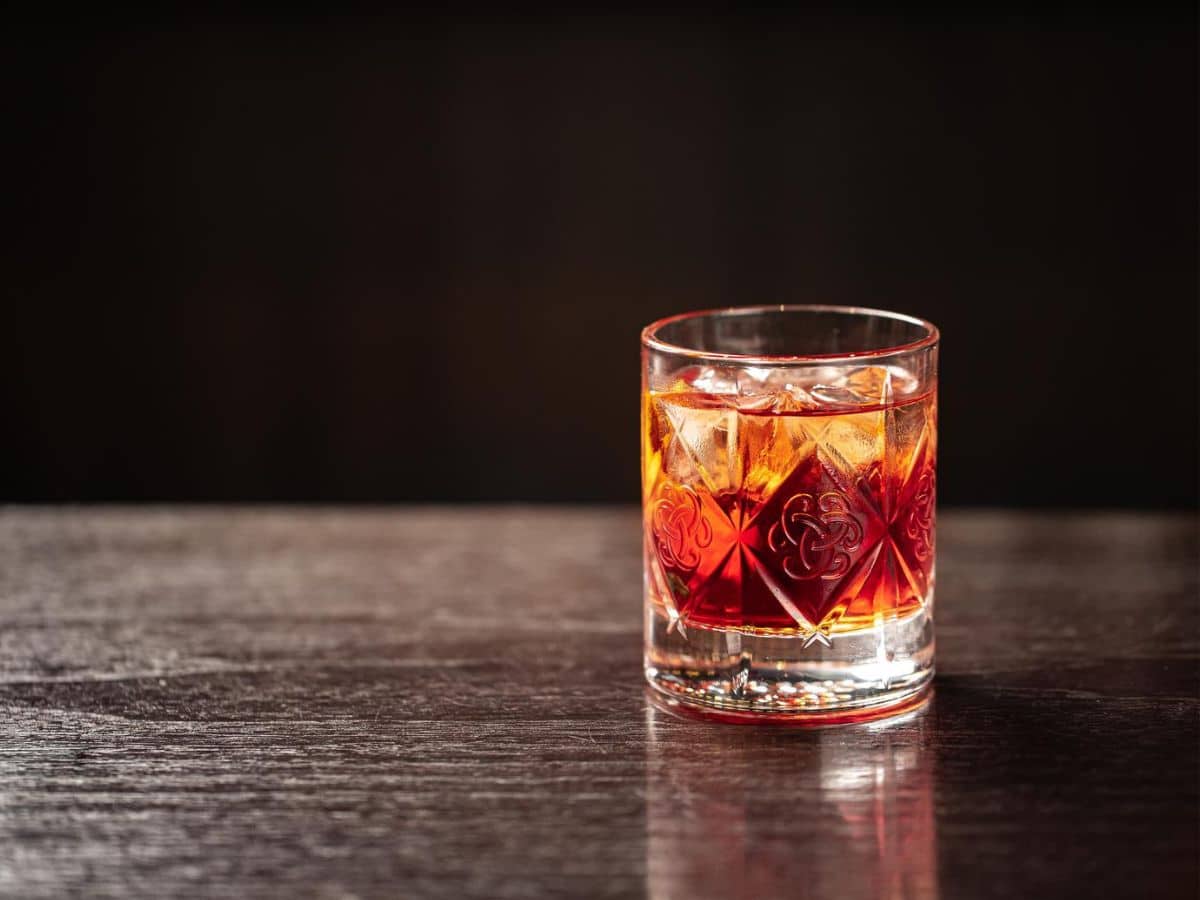
Red Dye
Some types of red dye, specifically carmine dye, aren’t vegan. Made from crushed, tiny insects called cochineal beetles, this red dye is another non-vegan ingredient that can be found in cocktails containing liqueurs, red vermouth, and grenadine syrup.
Until 2006, these beetles were used to make carmine dye, coloring the ruby-hued Campari liqueur used to mix up a Negroni. However, the clarification process includes animal gelatin, so even with a new type of dye, it isn’t considered vegan-friendly, according to Barnivore.
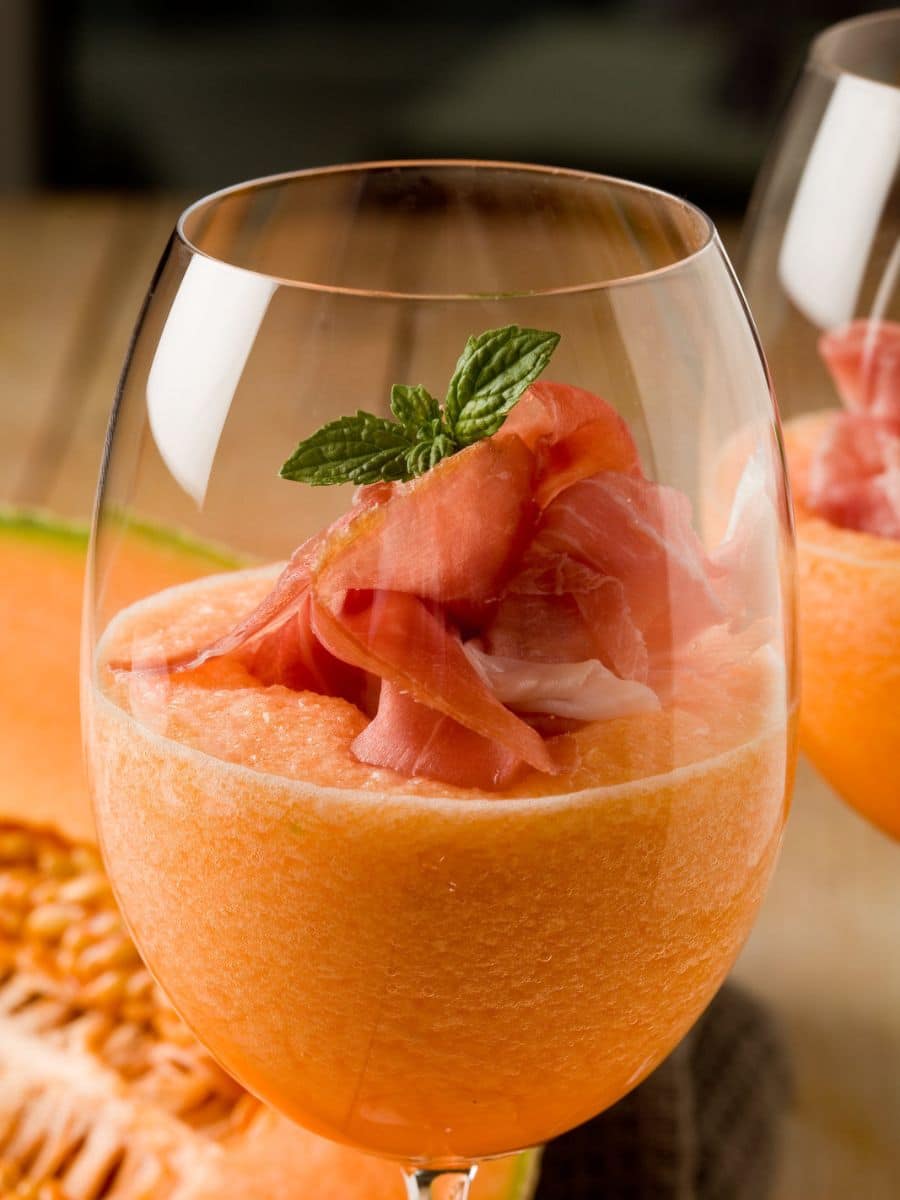
Fat-Washing
Fat-washing is most common in craft cocktail bars. This flavoring technique mixes a spirit with some type of fat at room temperature. When the mixture is chilled, the solidified fat is strained, and the resulting liquid has an amped up savory flavor courtesy of the fatty ingredient used in the process.
Common fat wash ingredients include butter, browned butter, bacon fat, and duck fat. When fat washing, bartenders also use soft cheeses like whipped feta or cream cheese. However, you can also fat wash using plant-based fats like coconut oil, avocado oil, and sesame oil. Nut butter like peanut butter and almond butter is another vegan-friendly option.
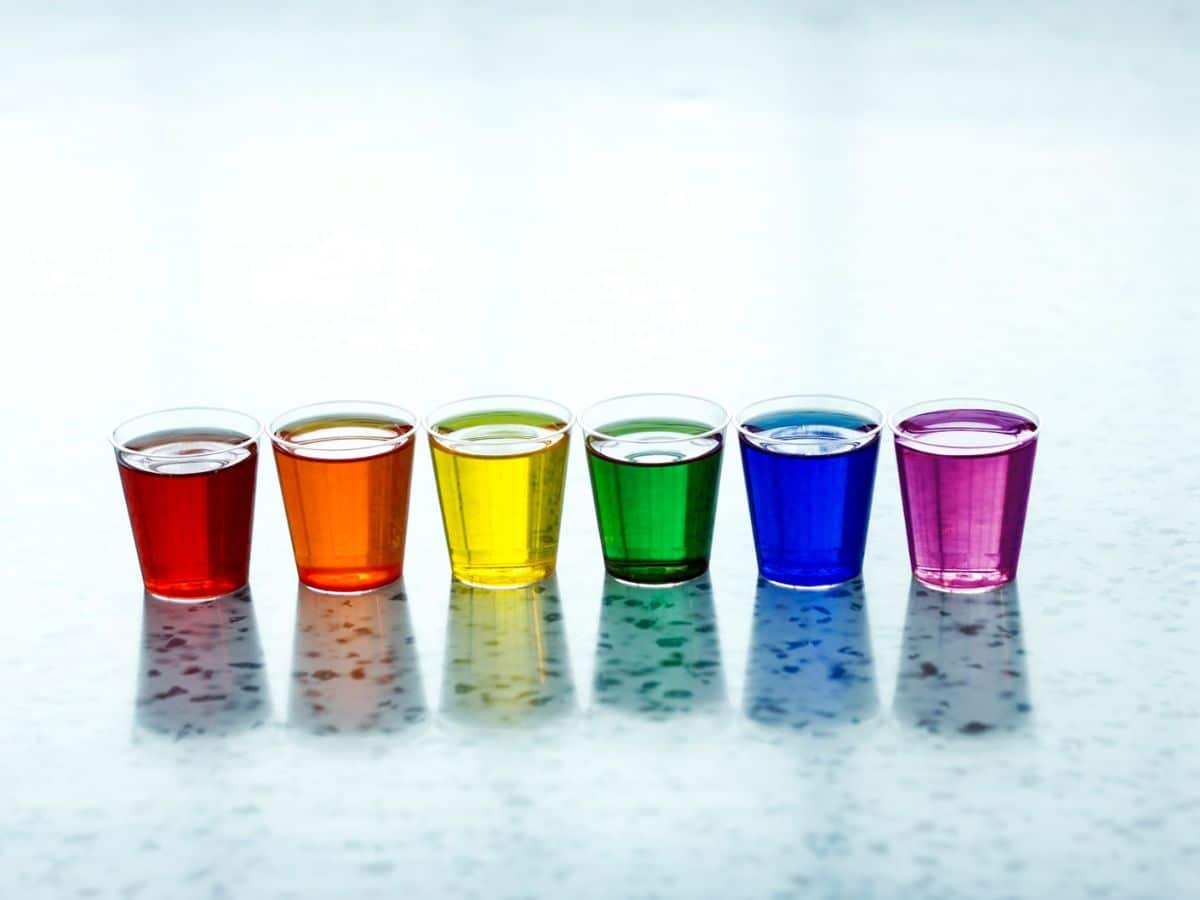
Gelatin
Gelatin is another animal product that can sneak into drink recipes. Because it is made from animal products like bones, cartilage, and skin, gelatin is not considered vegan. In drinks, gelatin adds texture. As noted above, manufacturers also use it to refine and clarify liquids.
Gelatin shots have been making a comeback in bars in the last few years. Unless made with plant-based gelatin, these jiggly shots are unsuitable for a vegan or alpha gal. There is such a thing as plant-based gelatin. It is often made from agar agar, an algae-based product extracted from seaweed. Cornstarch can also be substituted for gelatin to add a gelatinous effect to a vegan cocktail.
What’s Your Favorite Vegan Drink?
What’s your go-to vegan drink? Have you discovered any creative substitutes or hacks that make your beverages both delicious and vegan-friendly? Share your recommendations, tips, tricks, and other thoughts in the comments section below.
Portions of this article originally appeared on Food Drink Life.
Thank you for sharing!

